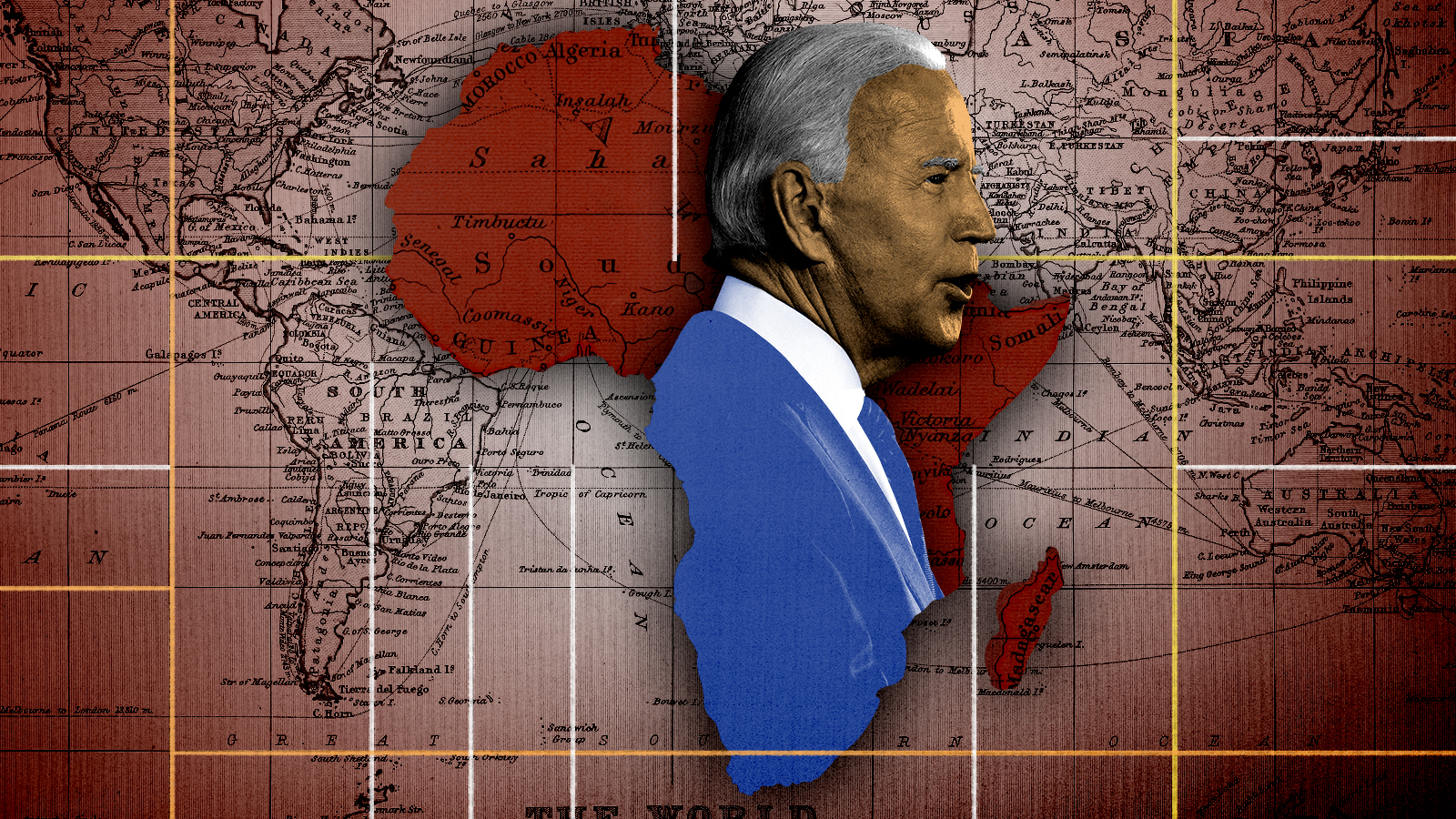Understanding the U.S.-Africa strategy under President Biden
The last time a U.S. president met with African leaders at the White House was in 2014


A free daily email with the biggest news stories of the day – and the best features from TheWeek.com
You are now subscribed
Your newsletter sign-up was successful
The U.S. wants better relations with Africa. As a step toward that goal, President Biden is hosting a summit with nearly 50 African leaders this week, a meeting designed to show America's "renewed commitment" to the continent, the Los Angeles Times reports. The United States wants to counter China's influence over Africa, while African leaders want to see more business and trade with the United States. What is Biden's strategy for Africa? Here's everything you need to know:
Why is Biden hosting an Africa summit now?
America's rivalry with China requires it. The meeting comes at a moment when "Africa's ties with China, and increasingly Russia, have attracted scrutiny," NPR reports. China particularly has spent decades cultivating its ties to the continent, and now serves as Africa's biggest trading partner and financier of infrastructure projects. "China's role in Africa and the prospect of a 21st-century 'scramble for Africa' have raised concerns across the political spectrum," The Washington Post reports. All this means the United States has some catching up to do if it wants to continue to have influence in Africa.
How did America let China take the lead in Africa?
The United States hasn't always paid close or respectful attention to the continent. While China has been meeting with African leaders every three years, this week's summit is the first time since 2014 that those same leaders have been invited to the White House. (Relations became "dormant" under President Donald Trump, who famously referred to African nations as "s--thole countries.") The Associated Press reports that American officials now want to "narrow a gaping trust gap" between the U.S. and Africa. That gap became particularly apparent when 17 African nations abstained from a U.N. vote to condemn Russia's invasion of Ukraine.
The Week
Escape your echo chamber. Get the facts behind the news, plus analysis from multiple perspectives.

Sign up for The Week's Free Newsletters
From our morning news briefing to a weekly Good News Newsletter, get the best of The Week delivered directly to your inbox.
From our morning news briefing to a weekly Good News Newsletter, get the best of The Week delivered directly to your inbox.
Why should Africa be important to the U.S.?
Africa has both political and natural resources that America and its allies want to maintain access to. Those items include "support on the war in Ukraine, cooperation in climate change reduction, and access to rare earth minerals critical to the West's competition with Beijing on everything from computing to sophisticated weaponry," Ashley Simango writes for Al Jazeera. "The summit … is rooted in the recognition that Africa is a key geopolitical player," says U.S. National Security Adviser Jake Sullivan. "The continent will shape the future not just of the African people, but also the world."
What do Africans want from America?
Tangible benefits. "At summits elsewhere, African leaders often leave with hard promises of assistance — Chinese infrastructure, Russian weapons, or Turkish drones, for instance," The New York Times reports. The continent's leaders want something similar from the U.S.: Help with debt relief, for example, as well as intellectual property waivers that will let African countries manufacture vaccines whose patents are held in western countries. And The Wall Street Journal reports that some countries, like Kenya and Nigeria, want U.S. backing against Islamist militants.
What they clearly don't want, though, is to be forced to take sides in the competition between America and its rivals. U.S. officials are stepping lightly as a result. "Time and again, they have been told to pick a side in great power contests that feel far removed from daily struggles of their people," Secretary of State Anthony Blinken said in August. "The United States will not dictate Africa's choices; neither should anyone else."
So what is America willing to give Africa?
A seat at the table, for one thing: President Biden is backing the African Union's efforts to be admitted as a permanent member to the G20 group of the world's richest economies. "We need more African voices in international conversations that concern the global economy, democracy and governance, climate change, health, and security," says one White House official. Other items that seem likely to emerge from the summit: A pledge of U.S. aid worth $55 billion over three years, as well as talks on renewing the African Growth and Opportunity Act, a free trade agreement currently set to expire in 2025.
A free daily email with the biggest news stories of the day – and the best features from TheWeek.com
What's next?
Follow-up will be important. "Biden's challenge will be to convince African leaders that his administration is ready to deliver robust diplomatic and economic engagement on the continent" instead of lapsing back into old habits of inattention, Politico reports. There's some bad history there: After the 2014 summit under President Barack Obama, the U.S. "cut funding to combat AIDS in Africa and reduced foreign aid to the region." That's left Africa leery of grand American promises of U.S. engagement. One sign that Biden plans to stick with it, though: He's planning a multi-country trip to Africa in 2023.
Joel Mathis is a writer with 30 years of newspaper and online journalism experience. His work also regularly appears in National Geographic and The Kansas City Star. His awards include best online commentary at the Online News Association and (twice) at the City and Regional Magazine Association.
